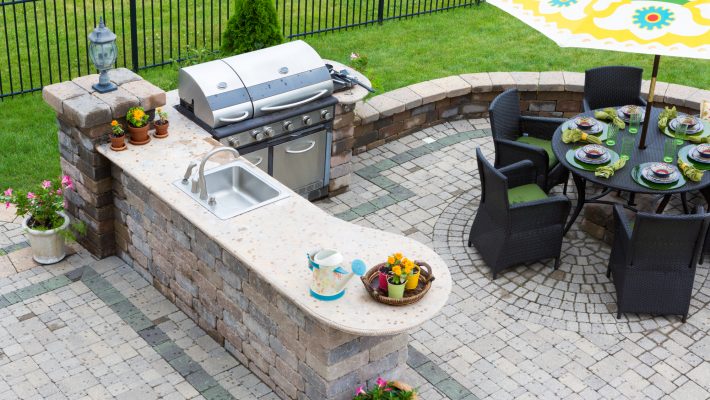By the time the holiday season finally rolls by, a lot of folks are left with a bit of the “post-holiday blues” and a little social exhaustion.
As much as you might have enjoyed hosting and gathering, and no matter how much you cherish all the memories you just made, the transition back to your regular, non-holiday life can feel somewhat rocky, especially when you’re feeling tired of people — even the ones that you love most.
What Is Social Exhaustion?
Social exhaustion refers to the feeling of being mentally drained or emotionally fatigued as a result of too many social interactions. It can occur when an individual spends a significant amount of time and energy engaging with others – a facet of life that is often non-stop for a lot of folks during the holiday season.
Why does social exhaustion happen? Well, introverts might be more prone to it than extroverts, but anybody can start to feel drained or worn out after they have to spend too much time navigating social cues in different settings, presenting their best “face” forward and holding conversations with relatives that (let’s be honest) can sometimes be exhausting. Managing too many expectations at once can make anybody want to retreat from the world.
Social exhaustion can manifest as an inability to focus, trouble sleeping, headaches, irritability, depression and anxiety. If you suddenly feel like the idea of even a brief interaction with your co-workers, family or friends would be just “too much” under any circumstances, you probably have social exhaustion.
What Can You Do About Social Exhaustion?
Recognizing your feelings is the cornerstone of coping with post-holiday social exhaustion. In other words: It’s okay to admit that you’re just “sick of people” for a little bit. It’s nothing personal towards the world – and it’s not a failing on your part. You need to be kind to yourself.
Once you acknowledge and accept how you are feeling, you can then take steps to get yourself in a better mental place, including:
1. Prioritize Your Self-Care
Self-care looks different for everybody, so listen to your body and do what feels right to you – but do it alone. If it makes you happy to put your home back in order, clear all your social engagements for a week and spend it cleaning. If you like to lose yourself in a different world, get a stack of books and curl up on the couch for a few days just reading. Find a way to relax that doesn’t require you to be “on display.” The key to self-care is to pick something that allows you to just spend some time being your authentic self, rather than the person you feel like you have to be in a social setting.
2. Ditch Your Social Media
Social media may be a step removed from face-to-face interactions, but it is still inherently social – and the pressure to keep up with instant messages, your favorite meme-posters and the news that friends and acquaintances constantly share can be heavy. Take a break from Facebook, Instagram, Twitter and TikTok for a week (or even a weekend) so that you can just focus on yourself.
3. Establish Some Boundaries
Do you have a hard time declining invitations? Then practice your response ahead of time. You can say something like, “I’d love to get together sometime, but that time won’t work for me. Can I get back to you when my schedule is better?” That allows you to set boundaries on your time without having to make explanations. This not only preserves your energy but also fosters healthier relationships.
4. Communicate Your Needs
Those who are closest to you may notice that you seem “out of sorts” and try to surround you with love and attention – which is the exact opposite of what you need right now. Let your loved ones know that you are actually suffering from a little burnout and that you will be fine – as soon as you have cocooned for a while. Reassure them that you’ll reach out to them if you need anything.
5. Try Something New
Sometimes, the best way to break out of a funk is to find something new to occupy your mind. When you’re contracting on something, there’s less room for intrusive thoughts and anxiety. Consider picking up a new (solitary) hobby like watercolors or indoor herb gardening. Or, if the weather is playing nice, get yourself outside and back in touch with nature. Walks in the park can do wonders for your spirit.
6. Get Some Quality Sleep
Sleep deprivation during the holidays is very real – and you could be running at a critical sleep deficit. That will always negatively affect your mood and ability to cope with life stressors. Do your best to get some extra rest and try to get into a better sleep routine.
7. Don’t Rush Reintegration
Even once you start to feel like you’re back on solid emotional ground again, don’t be in a hurry to reinvolve yourself in social settings. Be mindful about what you choose to do with your energy and time. Only agree to social engagements that you feel like you can control or will really enjoy.
Remember, recharging your mental and emotional batteries is a journey, and by incorporating these elements into your life, you can not only recover from post-holiday fatigue but also build a better foundation for your overall well-being.
amanda.phillips@talktotucker.combill.ingram@talktotucker.combrad.layton@talktotucker.comeditors-pickerina.pribyshchuk@talktotucker.comfeaturedlloyd.zimmerman@talktotucker.commark.callahan@talktotucker.commary.layton@talktotucker.compriscila.hale@talktotucker.comterri.mcgraw@talktotucker.com




